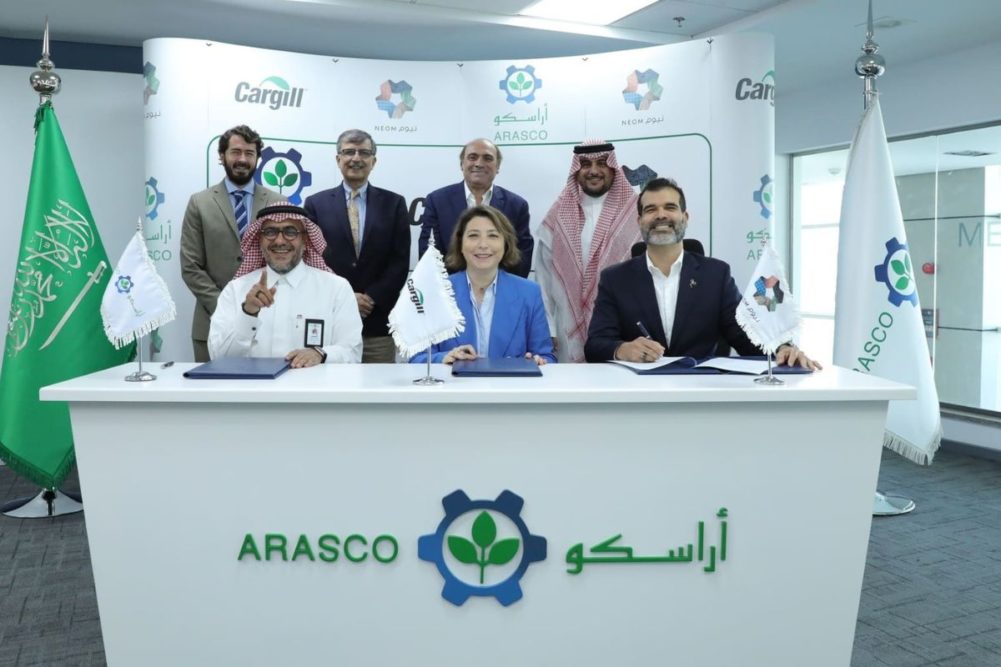RIYADH, SAUDI ARABIA — The Arabian Agricultural Services Company (ARASCO) has joined Cargill and NEOM to explore how they can work together to support best practices and improve sustainability in the Saudi aquacultural sector.
The three groups plan to work together to explore and scale up sustainable ways to meet rising domestic demand for aquaculture, including through research and development into more sustainable feed sources.
“Aquaculture began in Saudi nearly 35 years ago, now it became one of the highest exports in the KSA, and as per the statistics, aquaculture is one of the fastest-growing food production sectors in the world, and in Saudi we enjoy abundant natural resources along the west coastline (2,600 KM Long) where aquaculture can be a great potential opportunity to serve food security in Saudi,” said Nasser A. Abanmi, chief executive officer of ARASCO, which is the largest manufacturer of animal feed in the Middle East with three business segments that address food security.
“Additionally, we need aquaculture to help feed the world," he said. "By 2050, there will 9.7 billion people on the planet, according to the UN, and this growth will put huge pressure on food security and production in general, and fish in particular which is aligned with ARASCO’s mission to support food security in a sustainable way within the Kingdom of Saudi Arabia, and in the Middle East. We look forward to working with NEOM and Cargill in this noble mission.”
Helen Ziv-douki, global president of Cargill’s Aqua Nutrition business, said providing sustainable protein to feed the growing population will require a collaborative effort.
“We appreciate the opportunity to collaborate with ARASCO and NEOM with the aim of producing the seafood the world needs while minimizing its impact on the planet,” she said.
NEOM is the region in northwest Saudi Arabia that focuses on innovation and sustainability. Juan Carlos Motamayor, head of NEOM Food, said aquaculture offers the most sustainable way to produce protein in terms of water consumption and carbon emissions to arid countries such as Saudi Arabia.
“This agreement will ultimately lead to addressing the need to replace fishmeal by more sustainable fish feed,” he said. “Additionally, it aligns with NEOM’s efforts to facilitate the production and supply of sustainable seafood while protecting the marine environment. We look forward to working with ARASCO and Cargill to transform the seafood-production industry and minimize the environmental impact.”
The groups said the initiative is consistent with the plans and programs for the development and diversification of the Saudi economy under the Kingdom’s Vision 2030, which includes achieving self-sufficiency in industries including food, and developing export markets where possible.





